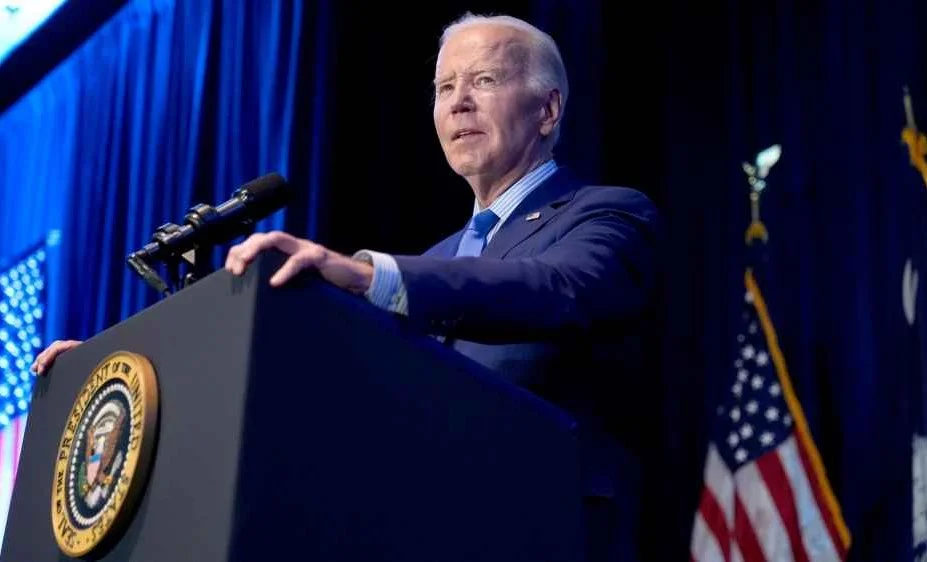
Summary:
- The recent attack by Iran-backed militants resulting in the deaths of three U.S. service members has intensified pressure on President Joe Biden to formulate a decisive response amid the backdrop of looming elections.
- With partisan tensions mounting, Biden navigates a delicate balance between projecting strength in the face of aggression and avoiding escalation that could derail his administration’s foreign policy goals and electoral prospects.
Washington, Jan 29 (TopNews) – The recent assault by Iran-backed militants that claimed the lives of three U.S. service members has plunged President Joe Biden into a critical juncture, amplifying the stakes as he confronts a burgeoning crisis in the Middle East against the backdrop of an election year.
Keep Reading:
- China Urges Iran to Curb Houthi Attacks in Red Sea, Threatens Trade Relations
- WATCH: Ugandan Minister Okello Oryem Labels Hunger-Afflicted Ugandans ‘Idiots’ – Video Included
- Trump’s New Hampshire Win Reveals Cracks in Support Among Moderates
Election-Year Dynamics:
As the specter of war looms large, the situation has become deeply entwined with electoral politics, with both Democrats and Republicans seizing the moment to shape the narrative and leverage the crisis for political advantage.
“President Biden faces an unprecedented challenge in navigating the complexities of the Iran crisis amidst heightened partisan tensions,” remarked White House Press Secretary Jen Psaki during a press briefing. “His administration remains steadfast in its commitment to safeguarding national security interests while upholding diplomatic principles.”
Partisan Divide:
The attack near Jordan’s border with Syria has exacerbated partisan fault lines, with Republicans amplifying calls for swift and forceful retaliation against Tehran, while Democrats advocate for a measured and strategic approach aimed at de-escalation.
Senator Tom Cotton and other Republican leaders have intensified their rhetoric, demanding unequivocal military action against Iran’s “terrorist forces,” framing the attack as a direct consequence of Biden’s purported foreign policy weaknesses.
“The safety of our troops demands decisive action against Iran,” asserted Senator Cotton during a congressional hearing.
Conversely, Democratic representatives caution against the risks of hasty escalation, emphasizing the need for diplomatic engagement and multilateral cooperation to address regional instability.
“We must exercise caution and prudence in our response to ensure the safety of our troops and regional stability,” remarked Senator Elizabeth Warren during a televised interview.
Biden’s Dilemma:
Amid mounting pressure, President Biden finds himself navigating a precarious balancing act, tasked with projecting strength and resolve while avoiding entanglement in a broader conflict with Iran that could imperil his administration’s foreign policy objectives and electoral viability.
“The crisis in the Middle East underscores the urgent need for strategic leadership and diplomatic engagement,” affirmed President Biden during a meeting with his national security team. “We will pursue a response that safeguards American interests and promotes regional stability.”
Amidst the aftermath of the tragic attack on U.S. troops, President Biden stands at the intersection of geopolitical turmoil and electoral pressures, grappling with the monumental task of steering the nation through turbulent waters.
With partisan divides deepening and the specter of conflict looming large, Biden’s handling of the Iran crisis holds profound implications for the trajectory of U.S. foreign policy and the integrity of democratic processes.
In this pivotal moment, the President faces a critical test of leadership, balancing the imperatives of national security with the demands of a polarized political landscape.
As the world watches with bated breath, Biden’s response not only shapes America’s role on the global stage but also echoes the essence of democratic governance in an uncertain era.
